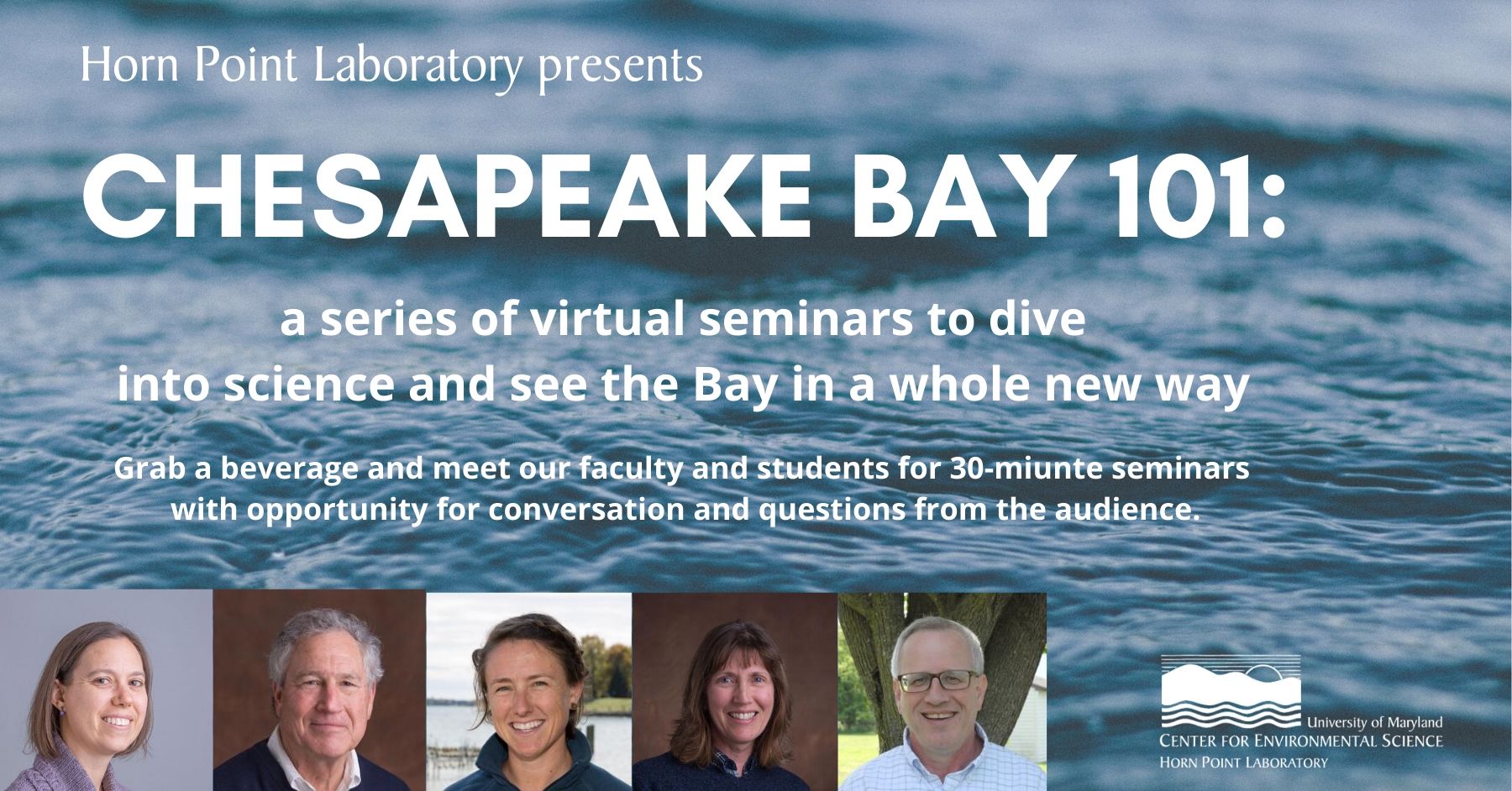
“Bay 101 – Science of the Chesapeake for Non-Scientists” is a series of five seminars hosted by Horn Point Laboratory faculty to shed light into the mysteries of the Bay, by highlighting Horn Point Laboratory programs working to improve the health of the Bay and its aquatic life.
While the Horn Point Laboratory is closed to the public, we will share this educational series virtually starting Wednesday, July 8 - August 5 at 5:00 pm. The 30 minute programs will each cover a specific topic and questions and participation is encouraged.
Registration is required for these FREE programs. Register HERE or contact Carin Starr at cstarr@umces.edu.
The Chesapeake Bay and its rivers are the lifeblood of the Eastern Shore, defining the region like no other water body in the world. While many easily recognize the natural beauty Bay country offers, the Horn Point Laboratory is offering “Bay 101 – Science of the Chesapeake for Non-Scientists” designed to make the science of the Chesapeake Bay as accessible as its beauty.
Bay 101 seminars include:
July 8: Chesapeake Bay’s currents and winds for sailors and water enthusiasts with Bill Boicourt
Beneath the sometimes hard-to-predict tides of Chesapeake Bay are remarkably dynamic motions. We will explore this classic estuary and the forces that drive it.
July 15: News on living shorelines to protect our waterfronts with Cindy Palinkas
Living shorelines are a more natural way to protect shorelines from erosion and provide valuable coastal habitat. Learn about what happens after they are installed, both at the shoreline and in adjacent waters.
July 22: Bolstering the Maryland oyster aquaculture industry with Shannon Hood
Oyster aquaculture is a growing industry in Maryland, attracting people from diverse backgrounds. Learn about this industry which provides an opportunity to feed a growing population, while providing ecological benefits that can benefit all of us.
July 29: Modeling: what it is and how it helps predict the future of the Chesapeake Bay with Kenny Rose
Many large-scale restoration projects rely heavily on computer simulation models to determine the best ways to restore the system and how progress will track in time. Learn the basics of these types of models and how they are used, using Chesapeake Bay as an example.
August 5: Chesapeake Bay underwater grasses with Lorie Staver
Underwater grasses are an important component of the Chesapeake Bay ecosystem and an indicator of Bay health. Learn about what they are, why they matter, and about our role in their decline and recovery."
